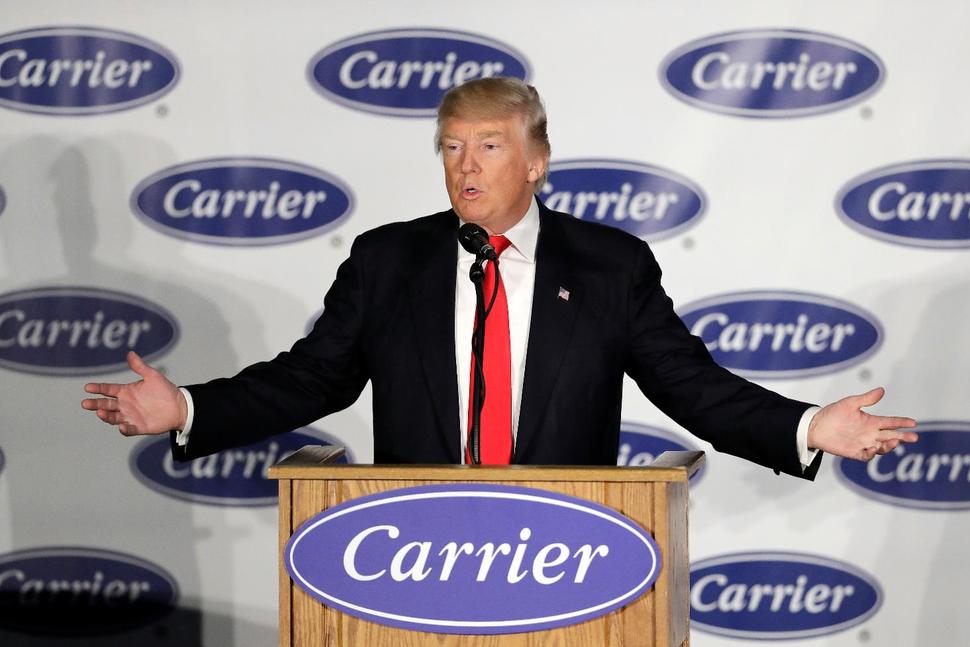
Donald Trump’s dramatic move to save 800 jobs at Carrier has attracted praise from supporters who see the president-elect as a man of his word. It has also drawn criticism from experts who view the one-off deal as a political stunt and a dangerous precedent that doesn’t alter the underlying conditions of the economy.
To be clear: for numerous reasons, Trump’s negotiations with Carrier are troubling and do not reflect sound economic policy. Yet we know that Trump’s proclivity for deal-making will persist. His professional experience is a series of transactions that have resulted in tall buildings, private golf clubs, and casinos. And members of his incoming cabinet, as well as leading Republicans in Congress, have signaled their support for this kind of intervention to achieve concrete results for the American people.
The question is: how can Trump’s instincts be adapted to benefit the largest share of people in an open and accountable manner?
Corporate retention subsidies are doled out every day in state and local economic development; it’s the president-elect’s direct intervention, and the power of his office, that makes this transaction news. On its face, the Carrier deal is pretty typical, saving 800 jobs for an unspecified period of time using a modest state subsidy that the corporation didn’t need to be competitive. I’ve written often about how such short-term, isolated, and subsidy-driven transactions to grow jobs and the economy are inefficient and can be better deployed.
Though job subsidies, and the headlines they attract, remain difficult to resist, many metropolitan leaders across the country are shifting from a transactional to a more systemic approach to economic development – one that can deliver better results for residents over the long-term.
Larger federal reforms are certainly needed to grow more good jobs in the American economy, but here are a few ways our new ribbon-cutter-in-chief could carry out future place-based interventions in a more sustainable, scaled manner:
The wisdom of the Carrier deal aside, it’s worth acknowledging that Trump’s demonstrated commitment to results and getting things done is also what motivates mayors and other local leaders. Public policy should be geared towards producing tangible benefits for people. But in the realm of transactional deals, lessons learned by leaders across America’s metropolitan areas can help guide the next administration toward a broader, more effective effort to create greater prosperity in communities.



Expositores: Oscar Vidarte (PUCP) Fernando González Vigil (Universidad del Pacífico) Inscripciones aquí. Leer más
Una retrospectiva para entender los próximos cuatro años. Leer más
En la conferencia se hará una presentación de los temas más relevantes del proceso de negociación se llevó a cabo desde el 2012, así como del acuerdo de paz firmado entre el Gobierno colombiano y la guerrilla de las FARC a finales del 2016. Se analizarán los desafíos y las... Leer más
El Observatorio de las Relaciones Peruano-Norteamericanas (ORPN) de la Universidad del Pacífico es un programa encargado de analizar y difundir información relevante sobre la situación política, económica y social de Estados Unidos y analizar, desde una perspectiva multidisciplinaria, su efecto en las relaciones bilaterales con el Perú.
© 2026 Universidad del Pacífico - Departamento Académico de Humanidades. Todos los derechos reservados.

